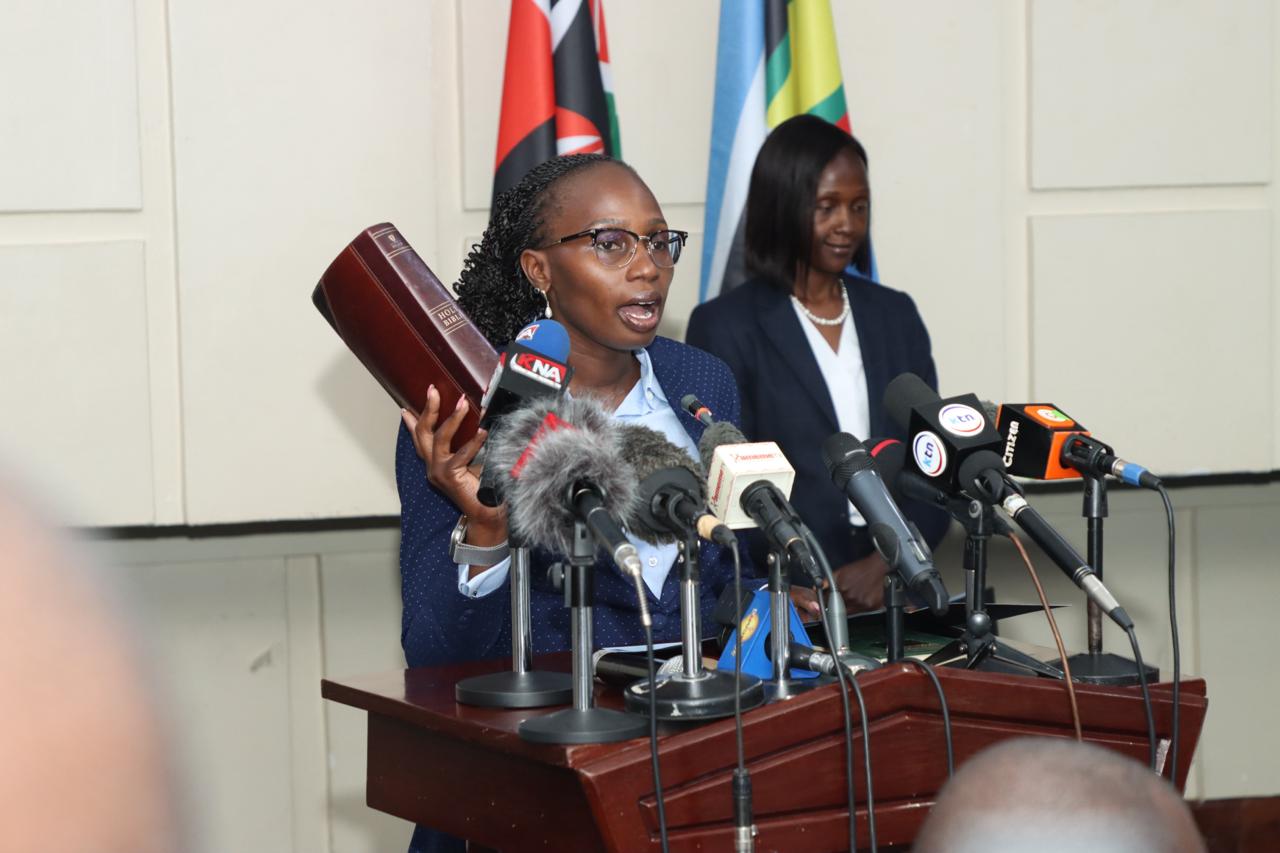The Victims’ Compensation Panel was seen by many within the Luo community as a possible turning point.
In Summary
- When Odhiambo later announced her resignation from the Panel, her decision sparked a range of reactions.
- Some viewed it as a matter of principle — a step taken to safeguard professional independence or highlight procedural concerns.
For more than sixty years, the Luo community has carried the heavy burden of what many describe as Kenya’s original sin — the unresolved betrayal born at the dawn of independence, when Jomo Kenyatta and Jaramogi Oginga Odinga took divergent paths in 1963.
Kenyatta chose to maintain a centralised state and economic system that largely continued the colonial structure of privilege and exclusion.
Jaramogi, on the other hand, envisioned a republic founded on empathy, equity, and justice — one that would heal the wounds of colonial rule and foster inclusive nationhood.
That historic divergence set Kenya on a path where the Luo community often found itself cast in the role of the conscience of the nation — questioning, resisting, and demanding fairness even when silence might have been safer.
It is a legacy that has come at a steep cost: lives lost, families exiled, and generations shaped by suspicion and marginalisation.
Yet it has also built a tradition of courage and moral clarity that continues to influence Kenya’s democratic journey.
A moment of renewed hope
When the government recently established the Victims’ Compensation Panel, many within the Luo community saw it as a possible turning point.
For families that have endured decades of loss and pain — from political violence to unresolved injustices — the initiative rekindled a quiet sense of hope.
President Ruto’s stated intention to confront historical wrongs was received as a rare acknowledgment of long-silenced wounds.
For those who have buried loved ones without closure, the panel represented not just a legal process, but a moral reckoning — an opportunity for truth, recognition, and healing.
The appointment of Law Society of Kenya (LSK) President Faith Odhiambo, herself from the region, initially amplified this optimism.
It seemed to signal that voices from historically affected communities would play a central role in shaping how justice is pursued and administered.
Faith’s resignation and the questions it raised
When Odhiambo later announced her resignation from the Panel, her decision sparked a range of reactions.
Some viewed it as a matter of principle — a step taken to safeguard professional independence or highlight procedural concerns.
Others, however, interpreted it as a missed opportunity for representation at a critical historical moment.
These differing interpretations reflect a broader conversation within the community about leadership, loyalty, and the delicate balance between personal conviction and collective responsibility.
In Kenya’s complex political landscape, where history and identity often intersect, such decisions are rarely received in isolation.
Leadership, legacy, and the lessons of history
The Luo community’s political story is filled with moments when individual choices shaped collective memories. From independence through the reform era, leaders from the region have often carried the dual expectation of serving both national and communal aspirations.
The debate surrounding Odhiambo’s resignation therefore taps into an enduring question: How do leaders navigate personal conscience while bearing the symbolic weight of their community’s history?
There are no easy answers. What is clear, however, is that every generation of leaders faces its own test of alignment between principle and public expectation. Kenya’s journey toward justice and reconciliation is ongoing.
Institutions like the Victims’ Compensation Panel will only fulfill their promise if they retain credibility, inclusivity, and moral integrity.
Whether inside or outside such structures, voices that push for accountability and fairness remain vital.
A call to remember and rebuild
The Luo community’s history is deeply intertwined with Kenya’s larger struggle for justice.
From independence to the present day, its people have often stood at the forefront of calls for equality, transparency, and human dignity.
The establishment of the compensation process marks an important milestone, but its success will depend on sustained participation, not just by government and professionals, but by citizens who continue to demand that the state confront its past honestly.
As Kenya seeks to heal its old wounds, every leader — regardless of position or community — will be judged not by the titles they hold, but by their contribution to truth and justice. by MARK SOTANY ODOUR, The Star






